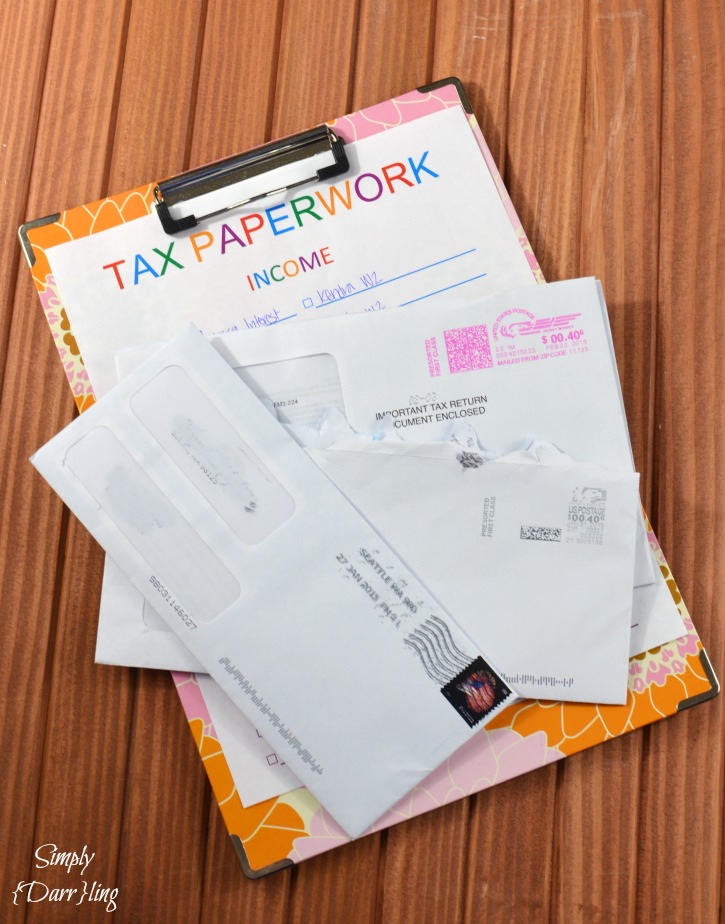Tax Paperwork Essentials for Contractors: A Simplified Guide

Understanding Tax Obligations for Contractors

If you’re a contractor, freelancer, or self-employed individual, navigating the world of tax obligations can be daunting. Whether you’re a seasoned contractor or just starting your independent career, understanding your tax responsibilities is crucial for maintaining compliance, maximizing your income, and minimizing stress during tax season. This guide aims to break down the essentials, simplify the process, and equip you with the knowledge to manage your tax paperwork efficiently.

Key Tax Documents You Should Know

Before delving into the specifics, let’s familiarize ourselves with the primary documents you’ll encounter as a contractor:
- Form 1099-NEC: This form is issued by businesses that pay you $600 or more in a year. It’s your primary income document if you receive payments for services rendered.
- Form 1099-MISC: Though less common now for contract work, this form reports miscellaneous income, such as rent or royalties.
- Schedule C: As part of your Form 1040, this is where you’ll report your business income and expenses.
- Self-Employment Tax: Schedule SE helps calculate your Social Security and Medicare taxes since you’re not having these deducted by an employer.
💡 Note: Always ensure you keep all your receipts and records meticulously organized for a smoother tax filing experience.
Calculating Your Income and Expenses

One of the fundamental aspects of your tax preparation is accurately calculating your income and deductible expenses:
- Income: This includes all income from your contract work, freelance projects, and any other business income.
- Expenses:
- Office supplies
- Travel expenses related to work
- Equipment and tools
- Home office deduction if applicable
- Professional fees (legal, accounting, etc.)
Here's a quick reference table to help you identify what can be deducted:
| Expense Category | Examples |
|---|---|
| Home Office | Part of rent or mortgage, utilities, office furniture |
| Vehicle | Mileage, maintenance, fuel |
| Supplies | Stationery, computer hardware, software |
| Travel | Flights, hotels, meals (50% deduction for meals) |

Quarterly Estimated Tax Payments

Unlike traditional employees, contractors must estimate and pay their taxes quarterly. This means you'll need to calculate and pay income tax and self-employment tax on the following schedule:
- April 15th: for income from January 1 to March 31
- June 15th: for income from April 1 to May 31
- September 15th: for income from June 1 to August 31
- January 15th (next year): for income from September 1 to December 31
Self-Employment Tax

As a contractor, you're responsible for both the employee and employer portion of Social Security and Medicare taxes, which together are known as self-employment tax. Here's what you need to know:
- The self-employment tax rate is 15.3%, with 12.4% going to Social Security and 2.9% to Medicare.
- However, you can deduct half of this tax (7.65%) on your income tax return to reduce your taxable income.
⚠️ Note: Failure to pay estimated taxes can result in penalties, so it's important to stay on top of these payments.
Finalizing Your Taxes

As tax season approaches, gathering your documentation, calculating your deductions, and making any final payments or adjustments is key:
- Collect all 1099 forms from clients.
- Summarize your expenses and calculate your deductions.
- File your Form 1040 with Schedule C, Schedule SE, and any other necessary forms.
- Consider electronic filing or hiring a tax professional if the process seems overwhelming.
Recap of Tax Essentials for Contractors

Navigating your taxes as a contractor involves a few key steps: Understanding your tax documents, accurately calculating your income and expenses, making estimated payments, accounting for self-employment tax, and finalizing your tax return. By mastering these elements, you can ensure compliance, potentially reduce your tax liability, and maintain a healthier financial profile. With careful organization and a bit of foresight, tax season doesn’t have to be a source of stress but rather an opportunity to reflect on your business’s financial health and plan for future growth.
What is the difference between 1099-NEC and 1099-MISC?
+
The IRS introduced the 1099-NEC specifically for reporting nonemployee compensation, which was previously reported under the 1099-MISC. Now, 1099-MISC is used for miscellaneous income like rents, royalties, or medical and health care payments.
Can I deduct home office expenses as a contractor?

+
Yes, if you meet certain criteria like using your home office exclusively for business purposes. You can deduct a portion of your rent or mortgage, utilities, insurance, and maintenance costs related to that space.
Do I need to pay taxes on income from hobbies?

+
If your activity is considered a hobby rather than a business (i.e., not carried out with the intention of making a profit), you must report any income on Schedule 1 (Form 1040). However, you can’t deduct hobby losses from your other income.
How do I know if my work qualifies as self-employment?

+
If you are running your own business or providing services on a freelance or contract basis, you are generally considered self-employed for tax purposes, meaning you’re responsible for your own taxes.



